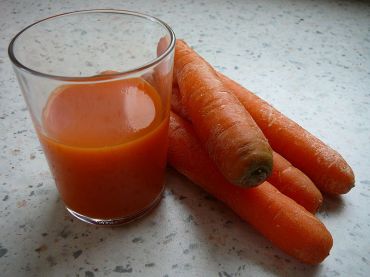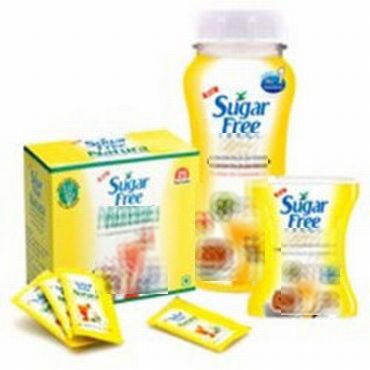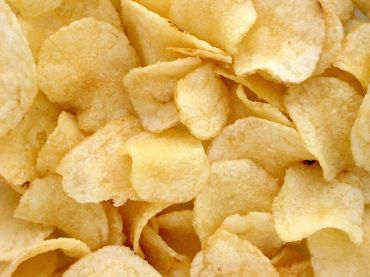Photographs: Salix/Wikimedia Commons Samreedhi Goel
This is for everyone who wants to improve their health, maintain it or just be fit!
All of us are aware of basic dieting rules, the dos and don'ts as far as weight and calories are concerned. However, most of us fail to give a thought to what is going into our body in the guise of 'healthy' choices. Here are some that you need to keep an eye out for:
Raw juices
A lot of health professionals advocate raw vegetable juices as part of a healthy diet, since they are high on fibre and retain some of the nutrients that are otherwise lost while cooking. However, there is a downside to these juices too.
Leafy raw vegetables like spinach, celery etc can actually do more harm that good when had in juice form, as they contain a lot of pesticides, some of which can be destroyed upon heating.
Moreover, research shows that a lot of nutrients in many vegetables are more easily available to the body when the vegetable is cooked. Iron, for instance, is more easily absorbed by the body from 37 of 48 vegetables when they are boiled, stir-fried, steamed or grilled.
Also, many people have a weak digestive system and are unable to digest raw vegetables in spite of all the natural enzymes they contain. They would benefit much more if they consumed these veggies in cooked form.
Artificial sweeteners
Image: Artificial sweeteners added to food instead of sugar are linked to nervous system disordersIf you are one of those who are only influenced by the calorie content of a food item and are more than willing to add artificial ingredients to your diet, think again!
Artificial sweeteners added to food instead of sugar are linked to nervous system disorders -- Alzheimer's Disease and autoimmune diseases such as Multiple Sclerosis (MS), as well as many forms of cancer. They are also known to gradually cause memory loss.
So if you are just opting for them to reduce your calories, add fruit to your diet instead -- they will help curb your sweet tooth. Also add small quantities of sugar to your tea, milk, coffee etc.
Trans fats
Image: Trans fats are are bad for our bodies because they increase our levels of LDLPhotographs: Dan Smith/Wikimedia Commons
Trans fats are not naturally occurring fats. Though a small amount of trans fatty acid is present in meats, most of the trans fats we consume today were actually invented and put into foods as a way to help them withstand the production process better and have a longer shelf life. These "fake" fats are even more detrimental to our cholesterol levels and our risk of heart disease than natural saturated fats.
Trans fats are bad for our bodies because they increase our levels of LDL (bad cholesterol) the same way that saturated fats like those found in butter and cream can. In addition, trans fats may play a bigger role in obesity than regular fats.
When our diet is made up of a large amount of trans fats, we may gain weight more easily. Trans fats are present in cookies, cakes, biscuits, bakery products etc.
Artificial colouring, MSG and synthetic fats
Image: Synthetic fats like olestra are added instead of fat to foods like chips and wafersPhotographs: Evan-Amos/Wikimedia Commons
A lot of packaged foods contain several harmful ingredients, most of which we don't even give a second thought to. Packaged foods can be high in sodium in the form of MSG (ajinomoto), which enhances the flavour of the food but at the same time, is not good for people with high BP.
Eating too many foods with artificial colours on a regular basis makes one more prone to nervous system disorders and ADHD. Synthetic fats like olestra are added instead of fat to foods like chips and wafers. Olestra is not absorbed by the body so it can cause diarrhoea, loose stools, abdominal cramps and flatulence. Further, olestra reduces the body's ability to absorb beneficial fat-soluble nutrients, including lycopene, lutein and beta-carotene.
So the next time you are choosing foods for your family, don't stop reading the label at 'calorie content' alone. Read further and think harder before you make those foods a part of your daily diet choices!





Comment
article